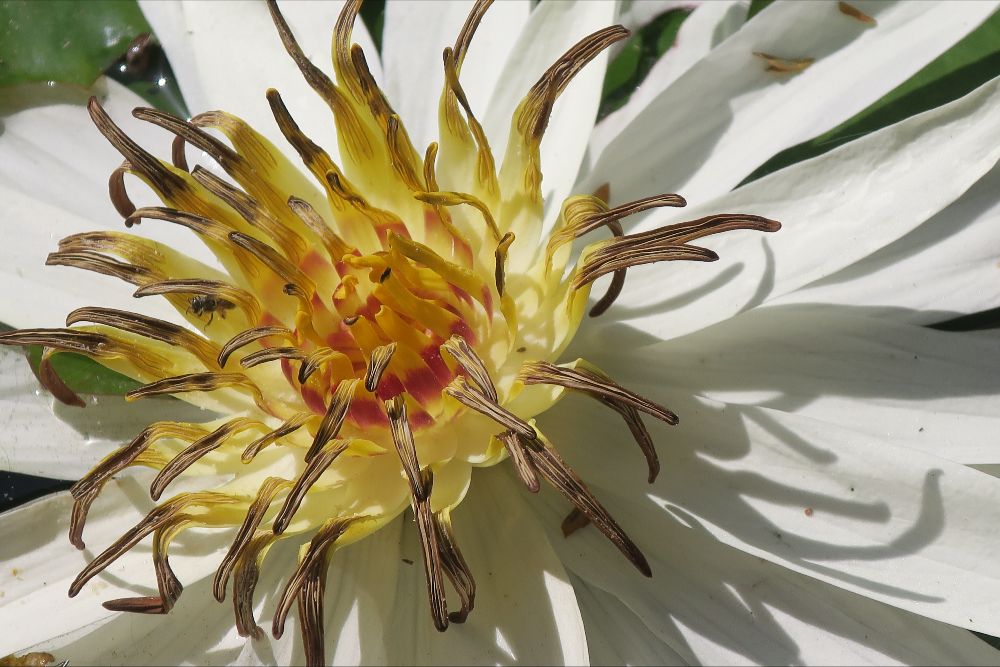
Nature is a powerful healer. She realigns the human body and mind to her own collective frequencies and hold secrets of healing that modern medicine is yet to discover or understand. There are those whose lives are dedicated to this healing energy and who come to understand her through a deep familiarity after years of living close to the soil.
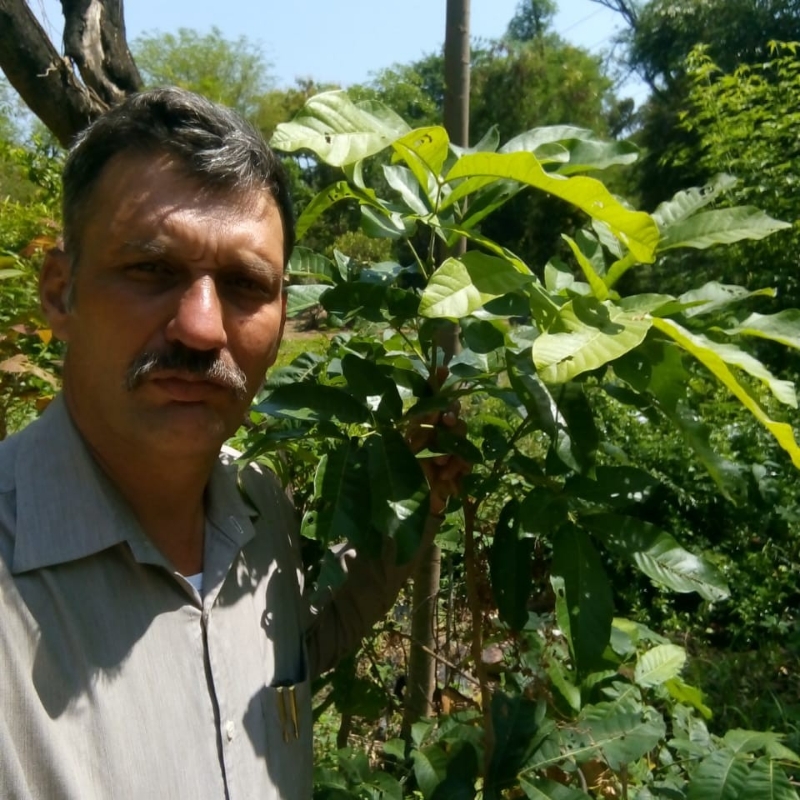
Vivek Gour Broome, has spent most of his life either on farms or in forests. A passionate botanist, Viveks area of speciality is indigenous trees and rare medicinal plants and he has been cultivating them on the Jambe Environment Farms, near Pune city, for nearly two decades.
The thought of living on a farm is romantic, but what does it take to create and maintain an organic medicinal farm, in the face of rampant development? In this newsletter, Vivek shares his insights into the importance of protecting these oases of natural healing.
Planting wilderness
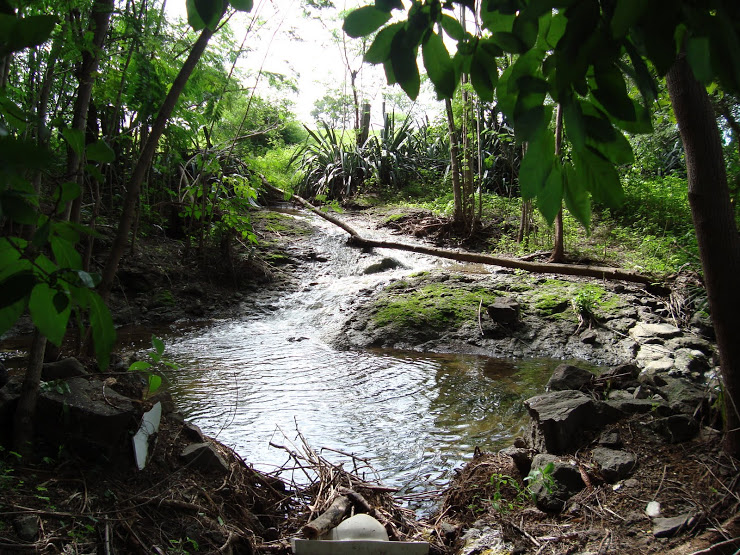
Pune was a dry decidous forest ecosystem many years ago – the Jambe Environment Farms is growing to become a representative of Pune’s original habitat. It takes a lifetime to grow a forest and Vivek has been steadily working at this. With trees of different ages, birds squirrels and bats, Vivek is nurturing an entire eco system – watching what grows naturally on the farm and introducing carefully what the terrain will take.
‘Even though Pune may have a lot more trees in fifty years from now, it won’t have wilderness. People need to understand and appreciate the value of wilderness – of allowing Nature to take charge. If you compare, Mahableshwar with Panchgani, you will see that the former still retains a wild quality whereas Panchgani has been overtaken with exotics.’
The wilderness heals us. To allow the wilderness to regenerate, we will have to let go of our motives of profit and our need for control. Vivek spends two thirds of his time in forests, in the wilderness, and the remaining one third in replicating that wilderness on his farm. On his travels, he conducts biodiversity surveys and assists others in setting up their own nurseries.
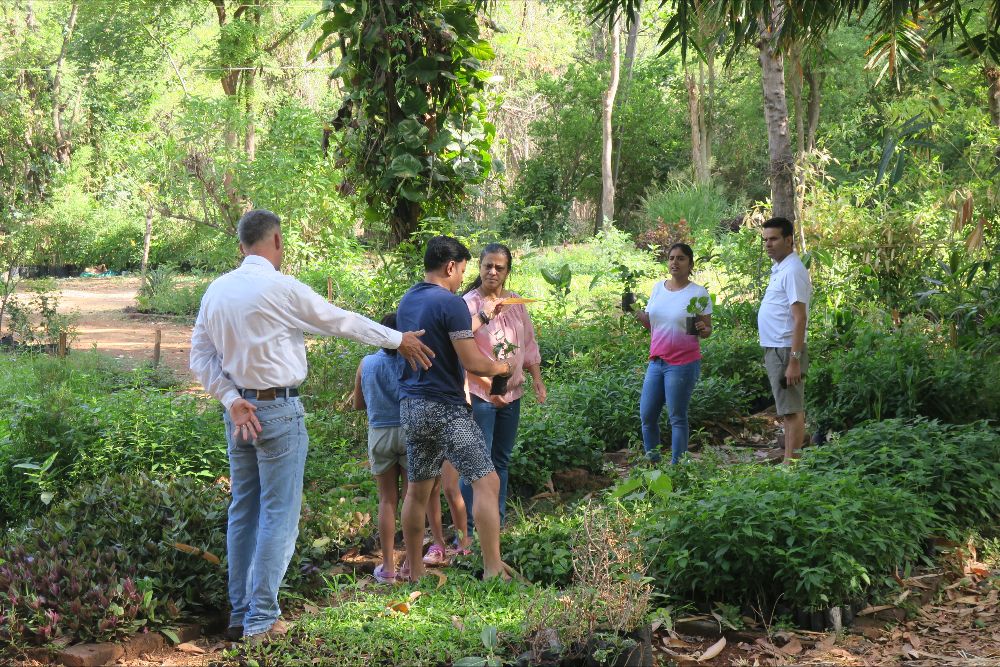
The Jambe Environment Farm has been a school for a whole generation of Punekars. Leela and Ashok Broome, Viveks parents, who started the farm, have been educating children and adults about the healing capacities of Nature for years, a tradition that Vivek continues. To spend a morning with him exploring the farm, is to immerse yourself in the magic and mystery of these medicinal plants. It is a truly fragrant experience, as Vivek will encourage you to taste and smell the plants and explain to you how to recognise them. And more importantly, how to care for them. The nursery carries 435 species of indigenous, rare and medicinal plants today.
‘According to Indian health traditions, every plant has medicinal properties, if you understand it correctly. We may be familiar with plants such as the rose, or bamboo for their aesthetic qualities, but they have their medicinal roles too. Similarly plants that are considered sacred like the Durva grass, are usually strong herbs and although people remember their sanctity , they dont know why they are considered sacred.’ says Vivek.
You can buy these saplings and bring them home to grow on your terrace or in your garden, and learn how to protect your immunity on a daily basis. You can teach your children how to grow them too, and offer them invaluable lessons in self care, while showing them that our own health is deeply dependent on the health of our natural environment.
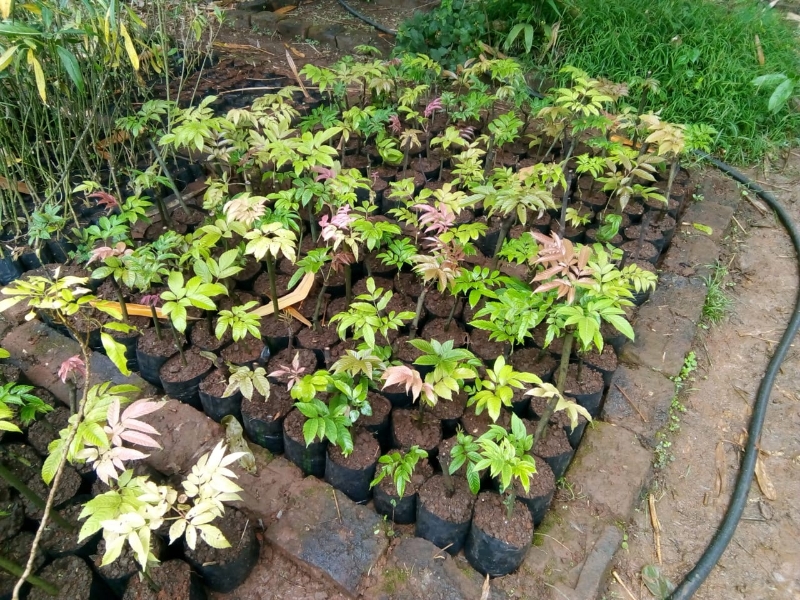
A refuge for wildlife
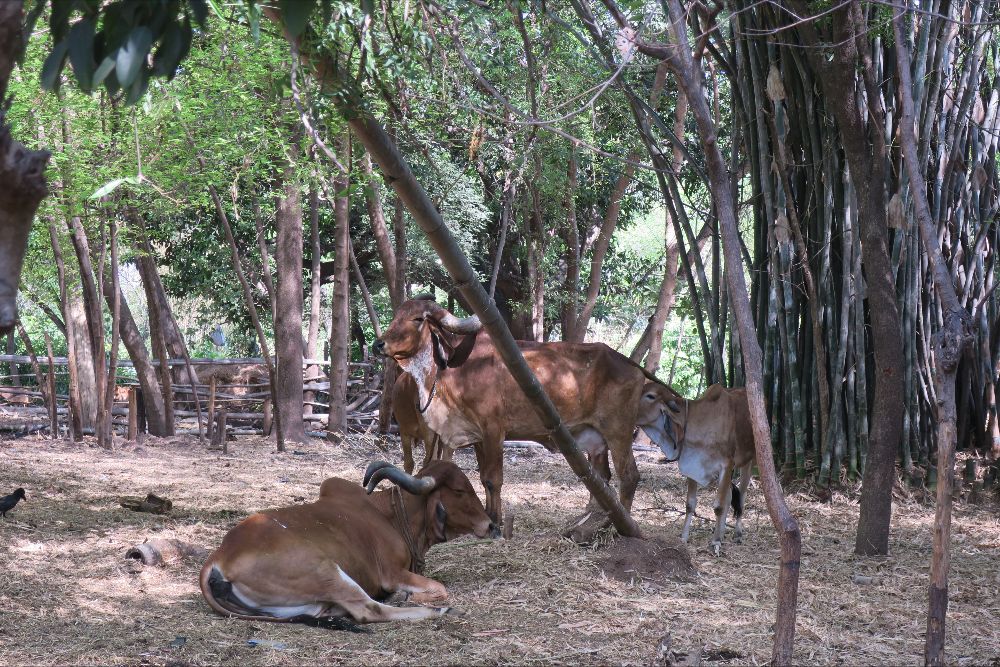
With urban sprawl and development creeping close, I asked Vivek whether the farm has become a refuge for wildlife. Over the years he has observed changes in the kind of wildlife the farm attracts, While in earlier times, wild boar, Indian foxes and jackals have been sighted on the farm these are no longer commonly seen. More recently, peacocks and peafowls, hares, jungle cats , civets and of course, plenty of snakes can be observed on the farm. The bird population consists of birds that are neither exceptionally rare nor commonly seen in the city. The Paradise Fly catcher, the Ruddy crake and the Night Heron have been sighted here, as have egrets, kingfishers, koels and shikras. The small green Barbet, Coppersmiths and the Maratha Woodpecker can also be seen.
The main deterrent for wildlife at the farm are the stray dogs that development brings with it. Dogs that have been fed at dhabas, roam around in search for wildlife when food is scarce in the off season.
The farm also has a cow population and has been supplying organic milk to nearby residents for several years now. Watching a new born calf, I was tempted to caress it, as Vivek gently chided me.
‘People develop attachment to the cows and this is not always healthy for the babies. We need to learn how to love and respect other species, while keeping the natural boundaries that allow them to blossom into healthy individuals’, he said.
Water management
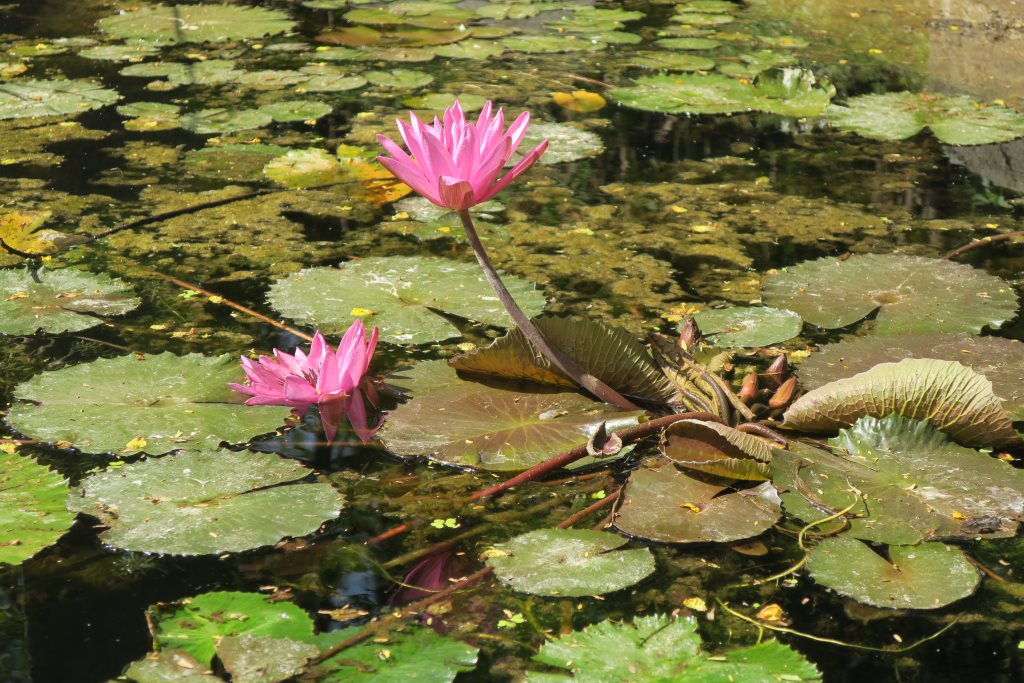
Water supply is crucial to the maintainence of any farm, yet when the Jambe farms first began, it was a completely dry area. A nearby strawberry farmer had set up a pump to take water from the river, and the overflow from his plantation was all that was available to Jambe. Slowly, Vivek and his family created a water body on the farm that is a biofilter for all the waste water in the region. Using hyacinths that he harvested from the Mula Mutha, Vivek created a root zone filtration system for waste water. This water is now used to irrigate his lands.
On one of my visits, we assisted Vivek to plant lilies in the water body and I was struck by the tenderness and care with which he handled the young saplings. ‘Each plant needs to be understood and loved… unless the leaves of this sapling float on the surface of the water the plant will not survive – so you have to plant it at exactly the right height.’
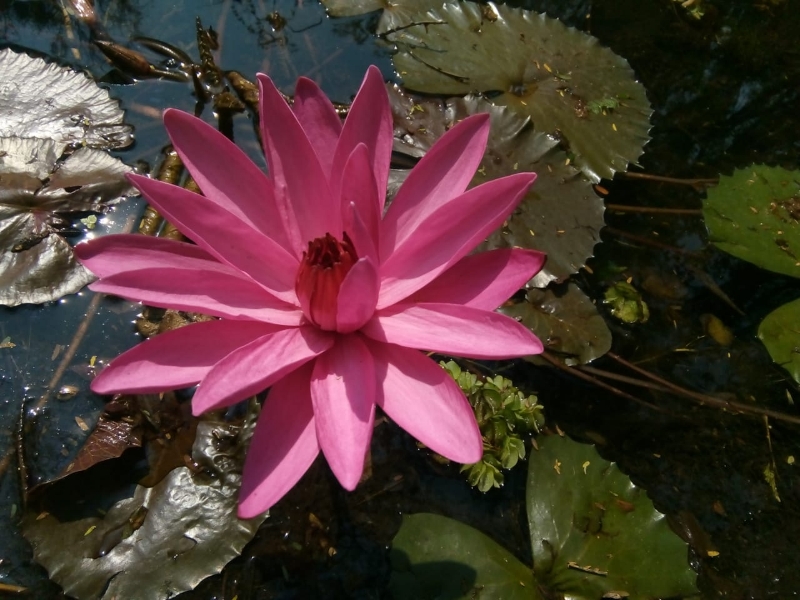
Challenges of farming
Creating and sustaining a farm like cannot be easy, I think to myself. What does it take, I ask Vivek.
‘Our main challenge on the farm has been that the soil and water are alkaline and this does not give us higher yields of crops. Originally we had planted several food crops here – ground nuts, rice, jowar and vegetables like onions, spinach, coriander, brinjal and chillies. However the low yield made it unsustainable. We then made the switch to the medicinal plant nursery.’
Labour is not a problem, if you are willing to offer them a decent wage. The Jambe farms hosts several families of labourers, who also get employed by other farms.
Vivek has helped several people set up their own farms around Pune and further away. For those who wish to start their own farm, Vivek extends a generous invitation – ‘Come and stay with us, farm with us and see how it is done before you start your own venture.The farming activity itself is not difficult – what is tougher is the management of the infrastructure, getting government permissions, managing electricity and water supply etc.’
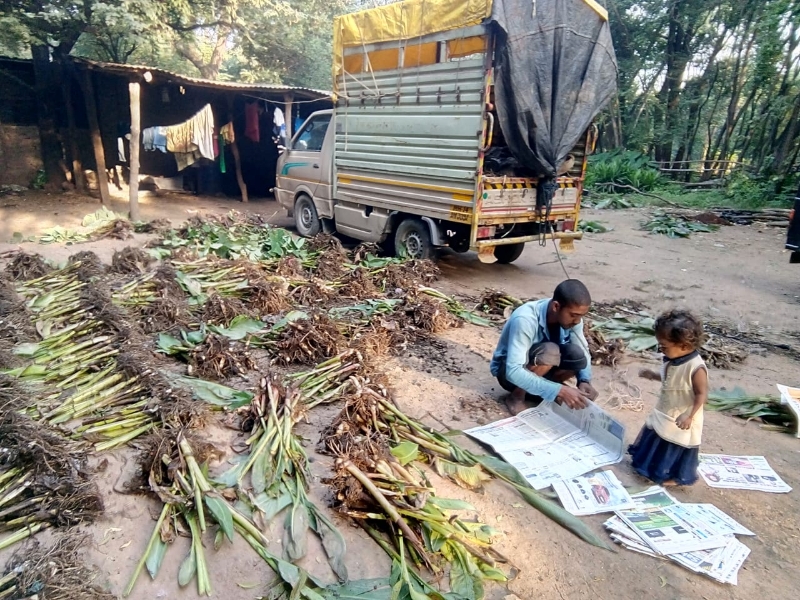
The future vision
Havent you ever been tempted to sell the farm out? Give up and do something else? I asked Vivek. The answer is a clear no. So what do you see in the future then?
Vivek’s vision for the future of the farm is that it becomes a collective dream.
‘If we had a small community of like minded people, who love the farm as much as we do, were willing to invest time and money into protecting it and running it, it could become a fantastic asset for the future of the entire city. There are about 15 to 20 such farms around Pune at various levels of growth. We are in touch with each other and four of these farms recieve labour support from us. Most of these farmers are doers, not talkers – so you may not have heard of them. However their work and vision are invaluable.’
For a map, please refer to the original article Farming for Healing
First published by eCoexist on May 2019